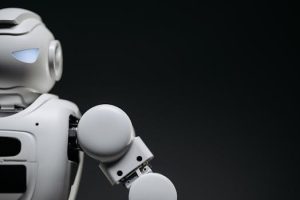AI Revolution: Transforming Automotive Production and Quality Control.
The automotive industry is on the brink of a technological revolution. With the rise of artificial intelligence (AI) and its integration into production and quality control processes, traditional manufacturing methods are being transformed. From assembly line robots to predictive maintenance systems, AI is optimizing efficiency, improving quality control, and reducing costs for automotive manufacturers. In this article, we will explore how AI is revolutionizing automotive production and quality control, and the impact it will have on the industry as a whole.
The Role of AI in Automotive Production
Streamlining Production Processes
One of the key ways in which AI is transforming the automotive industry is by streamlining production processes. Using sensors and machine learning algorithms, AI can analyze data in real-time and adjust production accordingly. This not only eliminates the need for manual supervision and intervention, but it also reduces the risk of errors and increases production speed. As a result, automotive manufacturers can produce more vehicles at a faster rate, meeting the growing demand for automobiles around the world.
Enhancing Quality Control
AI is also playing a crucial role in quality control for automotive production. Traditional quality control methods involve testing a small sample of vehicles for defects and errors. This process is time-consuming and can lead to missed issues or defects. With AI, however, every vehicle can be thoroughly inspected for any potential issues. Using advanced image recognition and machine learning algorithms, AI can detect even the smallest defects with a high level of accuracy, ensuring that only vehicles of the highest quality are delivered to consumers.
Improving Efficiency and Cost-effectiveness
The integration of AI into automotive production processes has also resulted in significant improvements in efficiency and cost-effectiveness. By automating certain tasks, AI can reduce the time and labor required for production, resulting in cost savings for manufacturers. Furthermore, AI-powered predictive maintenance systems can identify potential equipment failures before they happen, allowing for timely repairs and avoiding costly downtime. This not only improves efficiency but also reduces production costs in the long run.
Enabling Customization and Personalization
As consumer demands continue to evolve, the automotive industry is facing the challenge of producing vehicles that are highly customizable and personalized. With AI, this is now possible. By analyzing consumer data and preferences, AI can assist in the design and production of customized vehicles, providing a more tailored experience for customers. This not only improves customer satisfaction but also gives manufacturers a competitive edge in a highly competitive market.
The Impact of AI on Quality Control
Reducing Human Error
One of the main benefits of AI in quality control is its ability to reduce the risk of human error. Traditional quality control methods rely heavily on manual processes, making them susceptible to human error. By automating quality control with AI, there is a significantly lower margin for error, resulting in higher-quality products and reduced costs for manufacturers.
Identifying Potential Issues Early
AI-powered quality control systems can also identify potential issues early on, allowing for timely intervention and resolution. This not only helps manufacturers avoid costly recalls and repairs but also ensures that only vehicles of the highest quality reach consumers. As a result, customer satisfaction and loyalty are increased, leading to a stronger brand reputation and increased sales.
Optimizing Supply Chain Management
AI is also transforming the way automotive manufacturers manage their supply chain. By analyzing data from both internal systems and external sources, AI can help manufacturers make more informed decisions when it comes to sourcing materials and components. This results in a more streamlined and efficient supply chain, reducing costs and improving production timelines.
The Future of AI in Automotive Production and Quality Control
The use of AI in automotive production and quality control is still in its early stages, but the potential for growth and innovation is immense. As technology continues to advance, we can expect to see even more sophisticated AI-powered systems and processes being implemented in the automotive industry. From self-driving vehicles to 3D printing, the possibilities are endless. By embracing the AI revolution, automotive manufacturers can stay ahead in today’s constantly evolving market and deliver the best possible products to consumers.
Conclusion
The integration of AI into automotive production and quality control is truly revolutionizing the industry. From streamlining production processes and improving efficiency to enhancing quality control and enabling customization, the benefits of AI are undeniable. As we look towards the future, it is clear that AI will continue to play a crucial role in shaping the automotive industry, improving processes, and creating a more personalized and efficient experience for both manufacturers and consumers.







